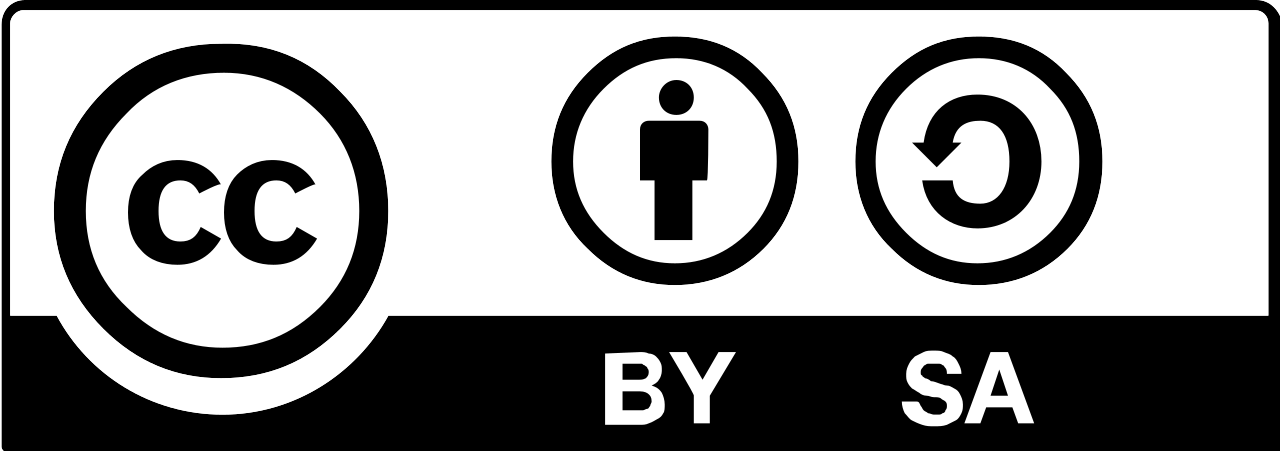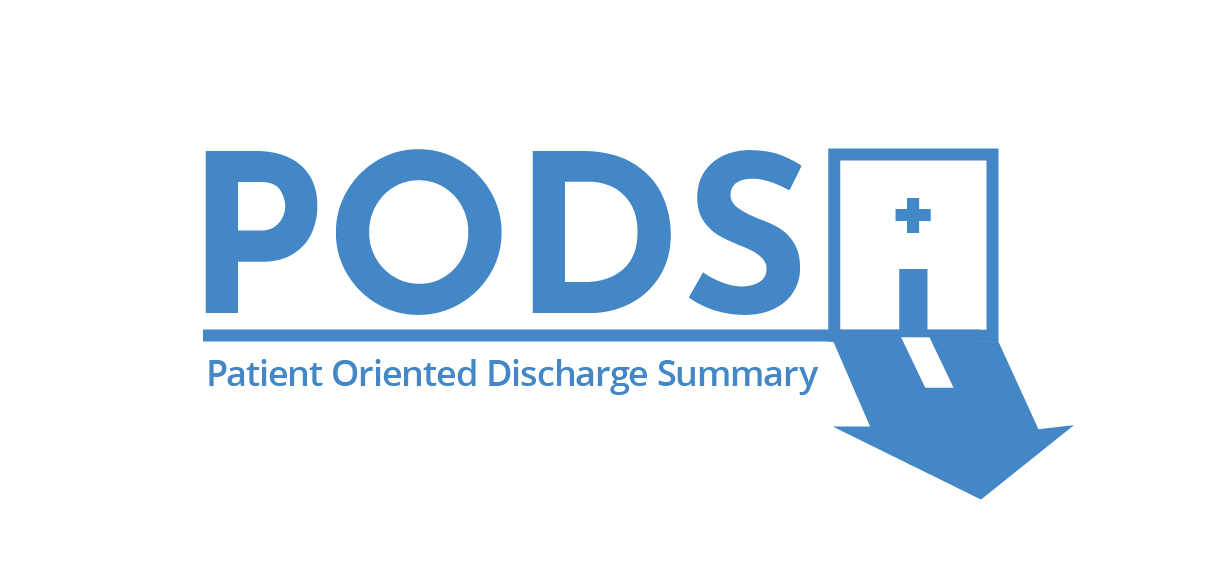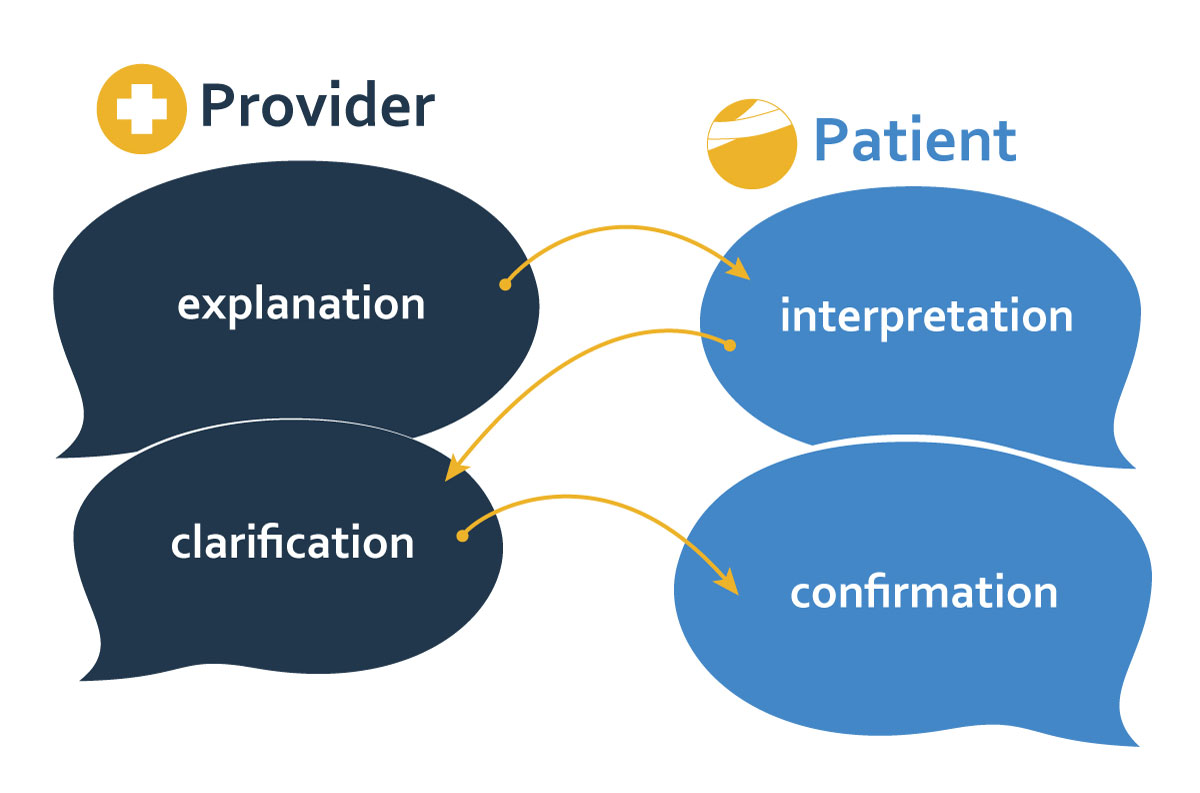About PODS
About PODS
The period following discharge from hospital is a vulnerable time for patients. Clearly communicating important information patients need to know the moment they leave hospital seems sensible, but is often challenging in practice for several reasons: Patients do not understand medical terms, might not be fluent in English/French, cannot memorize verbal instructions, or are too stressed at time of illness to absorb information.
Of over 1,000,000 hospital discharges in Ontario every year
- Discharges including a planning process 80%
- Patients reporting receiving needed condition & treatment information 61.6%
- Patients reporting having a discussion about at home supports 76.9%
- Patients reporting an understanding of medication instructions 76.5%
- Patients reporting an understanding of what to do if anxious 58.2%
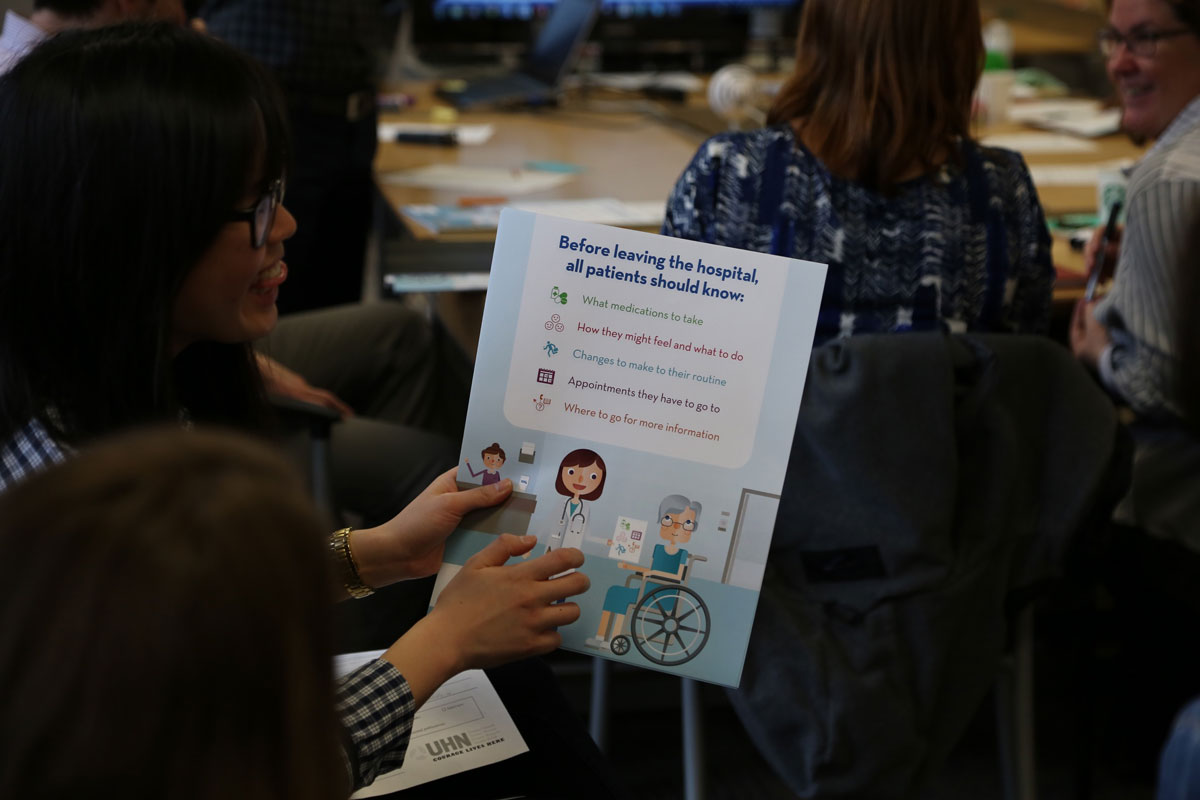
Most discharge summaries produced by hospitals are information dense documents laden with technical language meant mostly for the patient’s primary care provider, rather than the patient. These documents were not well suited for use as tools to transmit critical information from hospital to patient at time of discharge.
PODS is a simple tool and set of process changes that was co-created with over 50 patients and caregivers, including those with limited health literacy and language barriers, to ensure it met their needs, as well as with health care providers to ensure its usability and feasibility.
The PODS Formula
PODS is geared to the patient and family (not replacing the traditional summary for the primary care provider). PODS recognizes the value and importance of local adaptation. When an organization chooses to implement PODS, they take the sample template and guidelines and adapt them to meet the needs of their unique patient population and processes.
The PODS intervention provides best practice guidelines in three key areas:
blank
Content
PODS contains five sections that are actionable and useful for patients and their families:
- medications
- changes to daily activities and diet
- follow-up appointments
- resources for patients and families
- expected and worrisome symptoms to watch out for after leaving hospital
Additional sections can be added to address the needs of specific patient populations.
Design

Process
PODS is completed in the presence of the patient and their family using teach-back. PODS has a signature box for the provider and patient to mutually acknowledge that the information has been delivered and understood.
The PODS Form
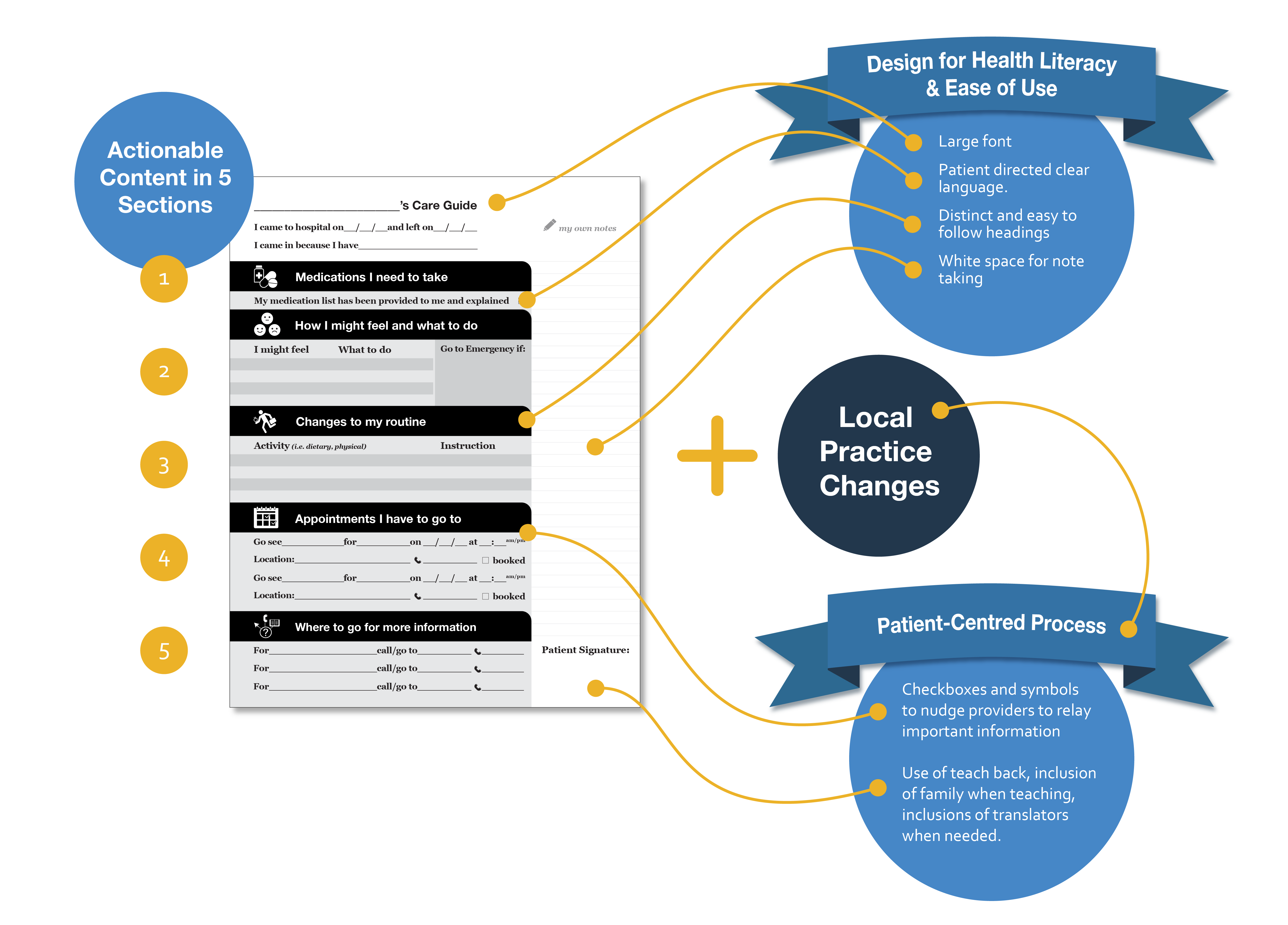
Who is using PODS?
Through the support of the Toronto Central LHIN, PODS was piloted in 8 Toronto-area hospital departments spanning adult, pediatric, rehabilitation, acute, and surgery in 2015.
Results showed that patient satisfaction scores related to discharge experience increased between 9.3% and 19.4% after PODS implementation.
Among the providers involved, over 80% felt that it did not add to their workload, saying that PODS gives structure to the discharge conversation, thereby increasing consistency and making it more efficient to get the most critical information across.
Through the support of the Council for Academic Hospitals of Ontario and Health Quality Ontario’s Adopting Research to Improve Care (ARTIC) grant, PODS was spread to hospitals across Ontario and through the Canadian Foundation for Healthcare Improvement’s Bridge 2 Home collaborative, it is being spread across across Canada.
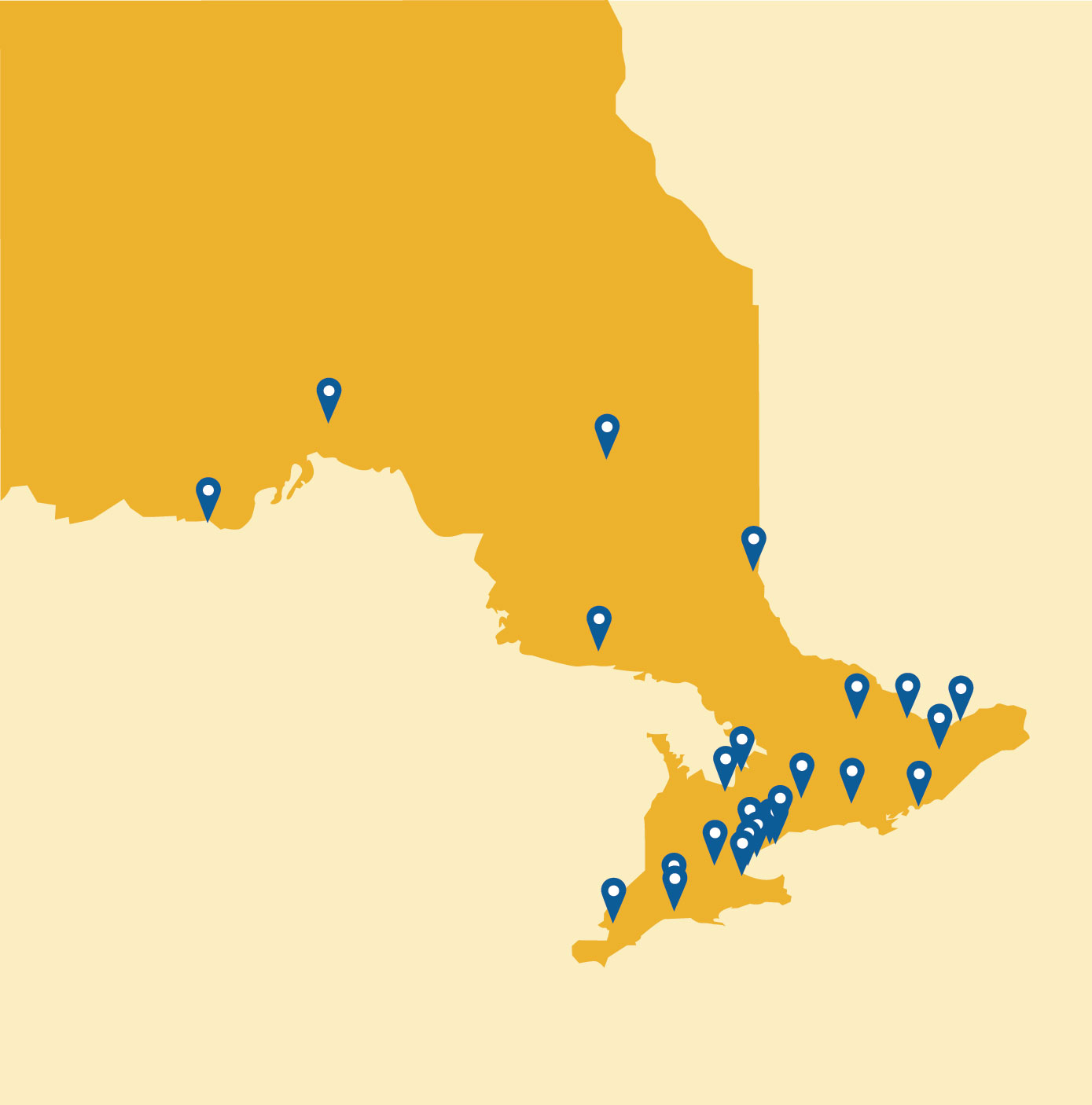
Awards
PODS was recognized on the Minister’s Medal Honour Roll in 2015 and by Accreditation Canada, the GTA Rehab Network, and the Canadian Patient Safety Institute

PODS by OpenLab is licensed under a Creative Commons Attribution-ShareAlike 4.0 International License
